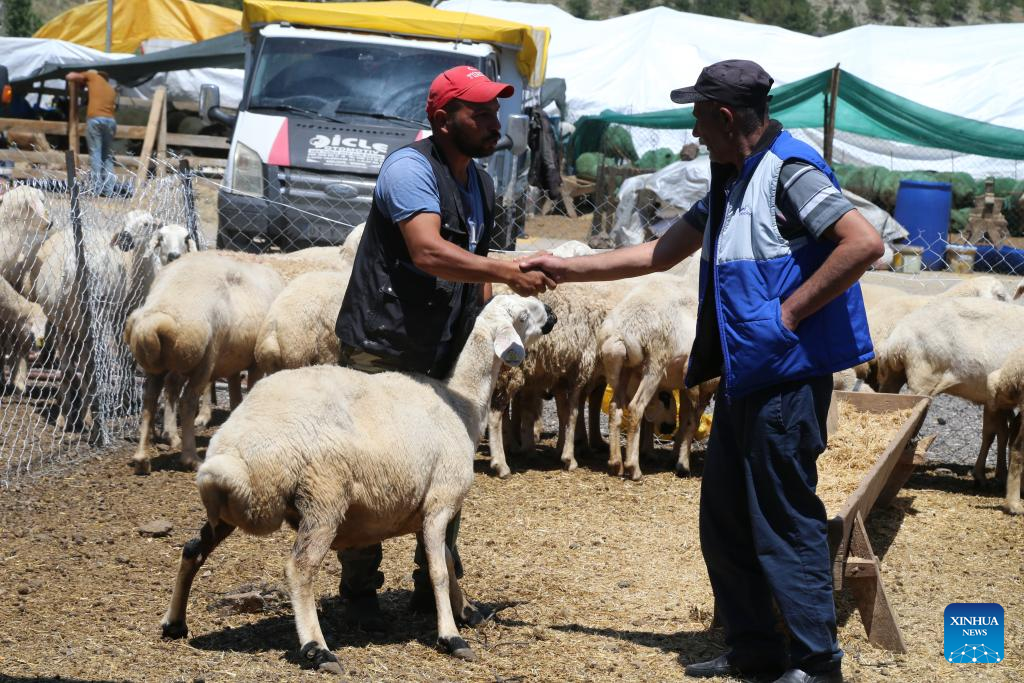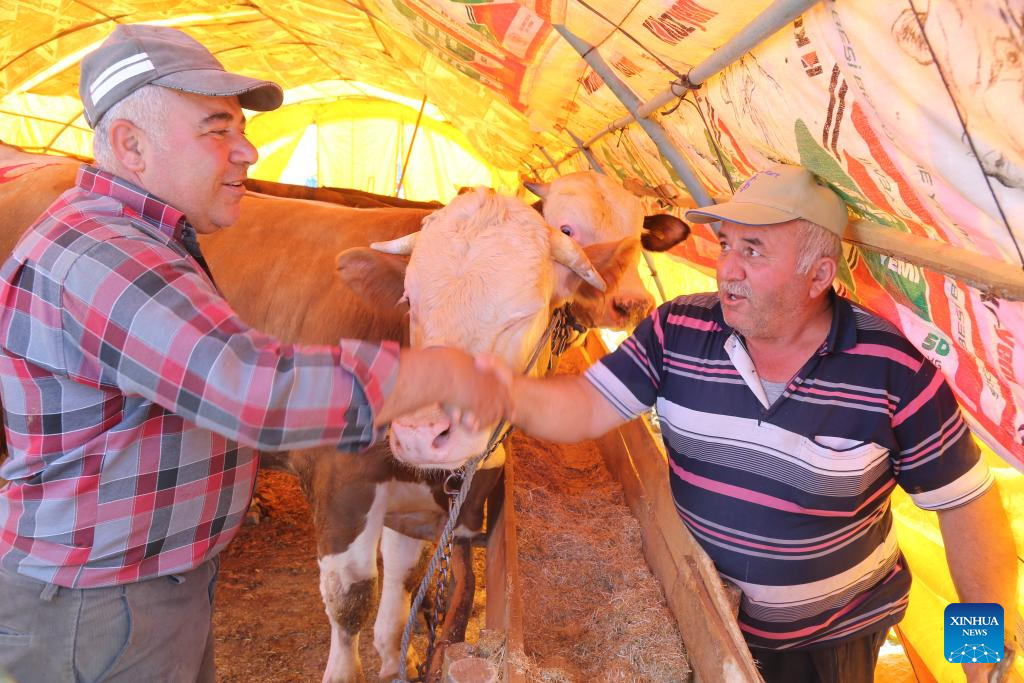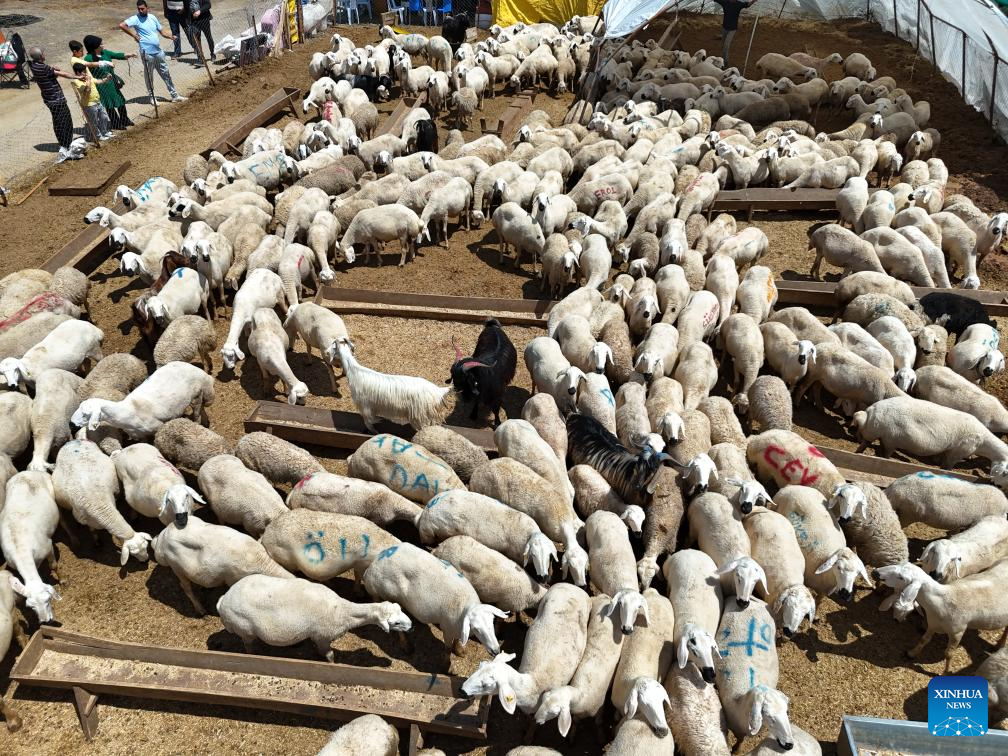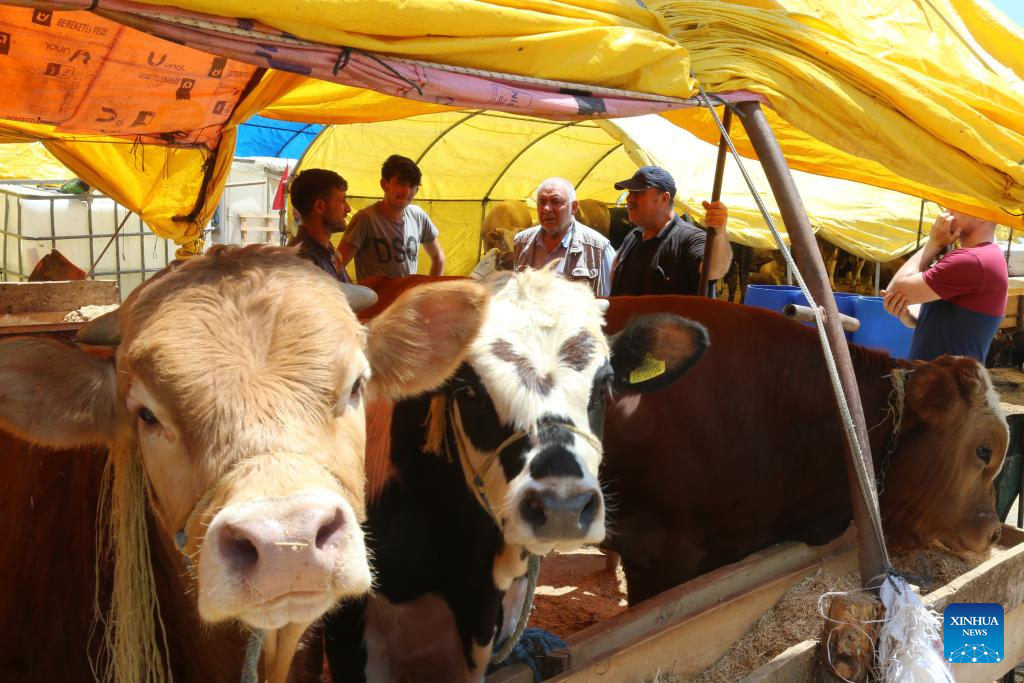
A customer buys sheep at a livestock market in Ankara, Türkiye, June 13, 2024. (Mustafa Kaya/Handout via Xinhua)
by Burak Akinci
ANKARA, June 13 (Xinhua) -- Unlike previous years, livestock markets in Ankara are experiencing a noticeable slowdown leading up to the Muslim festival Eid al-Adha due to the country's struggle with high inflation.
A sharp decline in consumer purchasing power has dampened the excitement of the four-day festival due to start on Sunday in Türkiye, traders told Xinhua in one market in the Muhye neighborhood of the Turkish capital city.
"Sales have plummeted this year. Compared to last year, business is significantly lower. Most of our colleagues have not managed to sell a single animal," Cumali Izol, a livestock seller, said under the sweltering heat.
Izol, a sheep vendor from the southeastern town of Siverek near the Syrian border, said many citizens cannot afford an animal to slaughter as their purchasing power has declined sharply amid a cost-of-living crisis.
Türkiye's minimum wage has increased to 17,002.12 lira (about 526 U.S. dollars) since January 2024, but buying a sheep costs between 15,000 and 17,000 lira, he said.
The price of a cow is approximately 10 times higher than that of a sheep, and there is even less demand for them in the market. Typically, a group of four or five people pool their resources to purchase cattle for slaughter.
The primary ritual of the Eid celebration is the sacrifice of livestock, the meat of which is then distributed among family, friends, and the poor.
Most Turks buy a sacrificial animal early before Eid al-Adha due to the high prices in the days leading up to the holiday, but this year it is not the case, according to Izol.
This year, meat and livestock prices rose by over 70 percent compared to last year, according to Semsi Bayraktar, head of the Union of Turkish Chambers of Agriculture.
"We want farmers to be able to sell their livestock for the feast, but prices are very high," he told private broadcaster NTV on Monday.
Orhan Dinc, another seller of goats and sheep, lamented that for the upcoming Eid season, "people don't even come here to look at the livestock because of economic woes."
"Last year, it was not like this. There were more clients looking and bargaining. But this year, it has markedly stagnated," the seller said.
Sellers also attributed the slowdown in sales to the government's decision to extend the Eid holiday to nine days in Türkiye.
"People spent the money they've got for a holiday," Izol said.
Türkiye's annual inflation remains high at 75.45 percent in May, hitting hard on consumers. The high cost of living affecting millions of Turks has been exacerbated by regular price hikes in most necessities and fuel.
The Turkish government initiated an extensive economic recovery program last year and pledged a significant decrease in inflation this summer.
Red meat prices have dropped by nearly 10 percent in recent weeks as government authorities have imported sheep and cows to meet local demand ahead of the religious festival.
However, the latest price drop falls short of helping consumers digest an increase of about 40 percent since the start of the year, Fazli Yalcindag, head of Ankara's Chamber of Butchers, told Xinhua.
"Meat prices are still very high and they remain largely above the reach of millions of consumers," he said. ■

A customer buys cattle at a livestock market in Ankara, Türkiye, June 13, 2024. (Mustafa Kaya/Handout via Xinhua)

An aerial drone photo taken on June 13, 2024 shows sheep at a livestock market in Ankara, Türkiye. (Mustafa Kaya/Handout via Xinhua)

People buy cattle at a livestock market in Ankara, Türkiye, June 13, 2024. (Mustafa Kaya/Handout via Xinhua)



